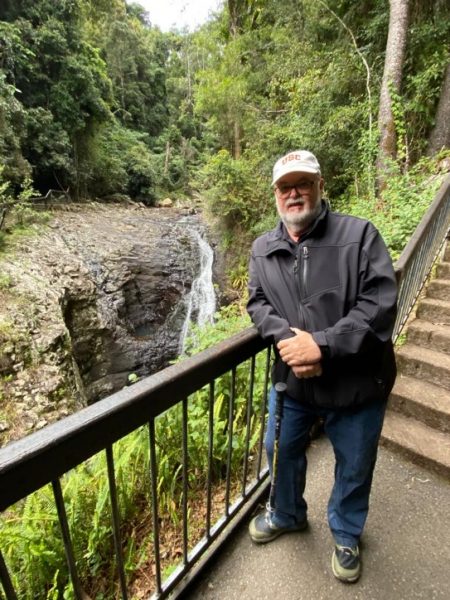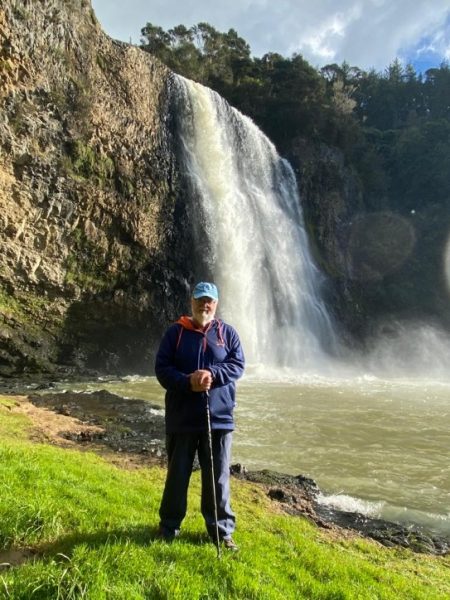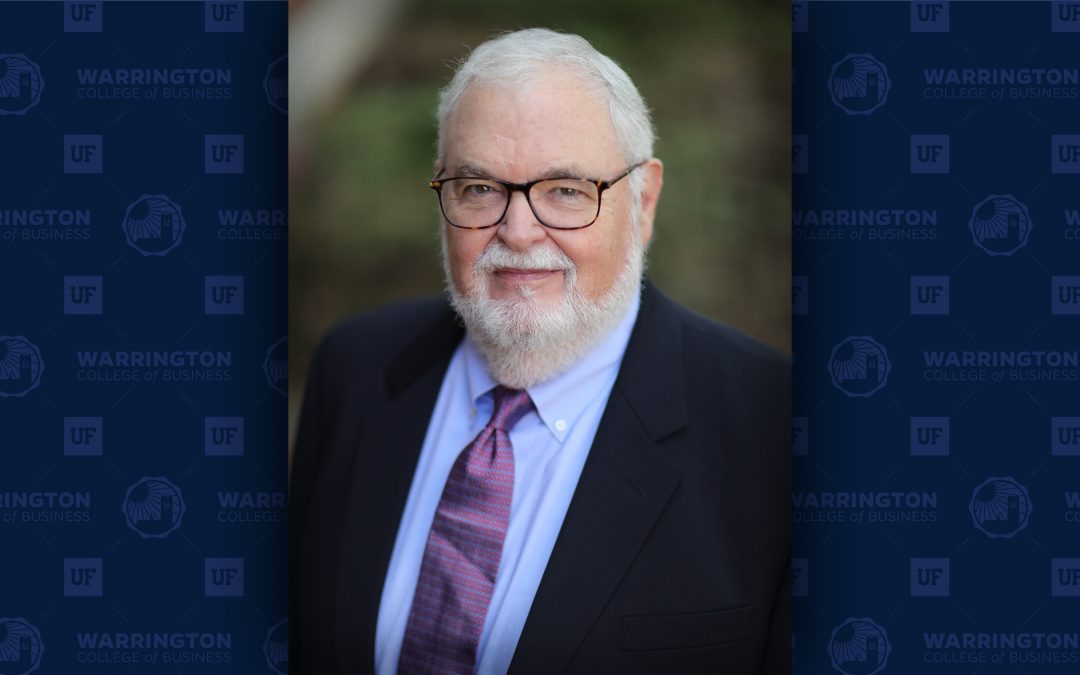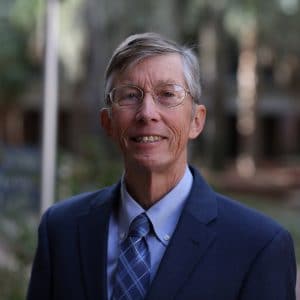Bringing the numbers back to accounting
Accounting is losing popularity among college students, according to Dr. W. Robert Knechel, Frederick E. Fisher Eminent Scholar Chair at the Warrington College of Business. But for Knechel, it’s been the path to the career of a lifetime.
Just a couple weeks ago, Knechel returned from a business trip in Greece, the sixth country he’s visited since May, including France, Scotland, Finland, Australia (twice) and New Zealand. In addition to teaching graduate students at the University of Florida and directing the International Accounting and Auditing Center, he travels all over the world to speak at conferences and work with international auditing firms and regulators.
Auditing is one of the many tracks an accountant can take. The need for auditing dates back to the 1600s, at least. In the case of the Dutch East Indies Fraud, historically known as “Tulipmania,” people bought and traded tulip bulbs without ever seeing or touching them. To the investors, it didn’t matter that they had never seen the bulbs, because they knew that Dutch tulips were coveted flowers. It didn’t matter, until they found out the bulbs they had bought and sold never existed in the first place.

“How do you build trust systems that allow people to get on with their lives [and] businesses to operate?” Knechel said. “Because you can’t observe everything, you can’t trust everything. You take a lot of things on faith.”
That’s why auditing exists – wherever there is risk, there are auditors to assess and mitigate it. Since the Sarbanes-Oxley Act was implemented by the United States government in 2002, auditing has been regulated by the Public Company Accounting Oversight Board (PCAOB). Fifty-five countries have become members of the PCAOB, some of which Knechel has been involved in structuring, but even with international cooperation, auditors struggle to regulate international companies.
“The challenge is that companies are international, but accounting firms are limited by national regulation,” Knechel explained. “So what I do, I’ve worked with a lot of these organizations in helping them try to figure out better mechanisms for regulation.”
The implementation of the PCAOB has revealed that roughly 30% of audits exhibit technical deficiencies. These are not actual failures in the sense that the auditor arrived at an incorrect answer in the vast majority of cases. Nevertheless, the reputational effect of these deficiencies may be one reason why accounting is losing popularity, Knechel said.
“This is a messaging problem,” he said. “When you tell that to an 18-year-old, they’re going to think that the profession really stinks at their job. Who wants to go into that profession?”
Knechel shared this point at the PCAOB’s annual meeting this year, where he was the plenary speaker. In his speech, he addressed additional factors driving the drop in accounting, including reduced enrollment in universities and out-of-date modes of operation and materials. To keep up with the times, accounting must be relevant, Knechel insists.
“I think what’s going to save the accounting profession is for [accounting firms] to embrace this with all their power,” he said. “[Being] knowledgeable about using current, let’s say, technology, for lack of a better word. Things that I think undergrads look to that aren’t necessarily adequately developed in the accounting world yet.
“But if you say, okay, you can become an accounting major and you can become an auditor, and you’re going to be able to study disclosures about sustainable investment, child labor, greenhouse gas emissions, women’s rights or any kind of DEI-type issues, all of a sudden that sounds a whole lot more interesting.”
For his career in the accounting field, Knechel definitely took an interesting track. After beginning his undergraduate studies in English literature, he decided to switch his major to math and then economics before settling on accounting. With his degree, he also earned his CPA and worked as a CPA and auditor until he went back to school for his doctorate. The University of Florida was his first job as an academic, and he’s stayed ever since being hired in 1981.
“I didn’t want to go North, because of the weather,” he said. “And Florida seemed like a good place to try. I didn’t expect to stay here for forty years, but once I got here, it took.”
Although he’s been with the University of Florida for his entire academic career, he’s spent a lot of time off campus, including a few years in Slovakia, his wife’s home country. In the 1990s, Knechel applied for the Fulbright Fellowship, a US government academic program that funds scholars to work overseas, hoping to surprise his wife. When his application was approved, his wife was surprised – and not happy.
“She was not too happy about taking a small baby to Bratislava for a cold winter,” he recalled, laughing. “Every other week, we’d go up for a five-day weekend to Prague for me to work on a project, which made her much happier.”
Working in Slovakia – and Prague – gave Knechel unique experience with international auditing. As Slovakia and the Czech Republic grappled with becoming separate nations, Knechel got to be a part of the new banking structure. He remembers negotiations between the countries centering around the restoration of a 600-year-old painting, previously moved by communist government from the Slovak part of Czechoslovakia to the Czech part.

Through his interactions with PhD students, Knechel has realized that he doesn’t have a typical work/life balance – he enjoys his career so much, he considers it a hobby.
“They always say you need a hobby,” he said. “And I realized, I don’t need a hobby – I probably need a job. If I had a job, I’d know when to stop.
“But now, I have a hobby, and I get paid for it. Why would I stop?”
Knechel’s international and auditing experience contributes to broader goals, such as sustainable development. In his career, he’s edited several renowned journals, including the top accounting journal, The Accounting Review, and recently co-founded a new journal, Accountability in a Sustainable World. Founding and editing this journal is another of the many ways that Knechel is using his career in accounting to make a global impact. He is adamant that prioritization of pressing issues, such as sustainable development, along with embracing modern technology, is what will bring the numbers back to accounting.
“If we embrace these changes, then we can essentially resuscitate accountancy as a legitimate profession that people respect and want to go into,” he said. “That’s the challenge that we have facing us.”




